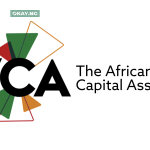In a concerning trend for Nigeria’s subnational governments, the Federation Account Allocation Committee (FAAC) has reported a third consecutive monthly decline in revenue disbursements. The total amount shared for March 2025 stood at N1.578 trillion, a further drop from the N1.678 trillion distributed in February and the N1.703 trillion in January. This financial squeeze raises critical questions about the fiscal sustainability of states and local government councils nationwide.
The figures, disclosed in a press statement by Bawa Mokwa, Director of Press and Public Relations, Office of the Accountant General of the Federation, following the April FAAC meeting in Abuja, paint a picture of shrinking revenue streams. The N1.578 trillion distribution comprised N931.325 billion from statutory revenue, N593.750 billion from Value Added Tax (VAT), N24.971 billion from the Electronic Money Transfer Levy (EMTL), and N28.711 billion from exchange difference revenue.
“A total sum of N1.578 trillion, being March 2025 Federation Account Revenue, has been shared to the Federal Government, States and the Local Government Councils,” the statement conveyed.
Breakdown of Allocations:
- Federal Government: N528.696 billion
- State Governments: N530.448 billion
- Local Government Councils: N387.002 billion
- Oil-Producing States (13% Derivation): N132.611 billion
Further dissecting the data reveals that while gross statutory revenue saw a marginal increase, VAT collections experienced a notable decline. “Although gross statutory revenue increased from N1.653 trillion in February to N1.718 trillion in March, VAT collections declined from N654.456 billion to N637.618 billion,” the FAAC report stated.
Economic Implications and Fiscal Strain:
The consistent downward trajectory of FAAC allocations is poised to exacerbate the financial challenges faced by state and local governments. These entities rely heavily on these monthly disbursements to fund essential services, including infrastructure development, education, and healthcare. The concurrent rise in inflation and increasing expenditure obligations only compound these pressures.
The decline in revenue from key sources like VAT, alongside the complexities of global oil markets, is creating a challenging fiscal environment. This situation underscores the urgent need for states to diversify their revenue bases and enhance internal revenue generation.
The FAAC noted that while Petroleum Profit Tax and Companies Income Tax saw increases, revenues from oil and gas royalty, VAT, EMTL, excise duty, import duty, and CET levies all declined. This diversified movement of income, highlights the volatility of the national income.
The ramifications of these declining allocations are significant. The potential for reduced public services, delayed infrastructure projects, and increased fiscal strain on subnational governments cannot be overlooked. The ability of State governments to pay public servant salaries is also a key concern.
The need for sustainable fiscal management and diversified revenue strategies has never been more critical. As Nigeria navigates these economic headwinds, the long-term fiscal health of its subnational governments will depend on their ability to adapt and innovate.













